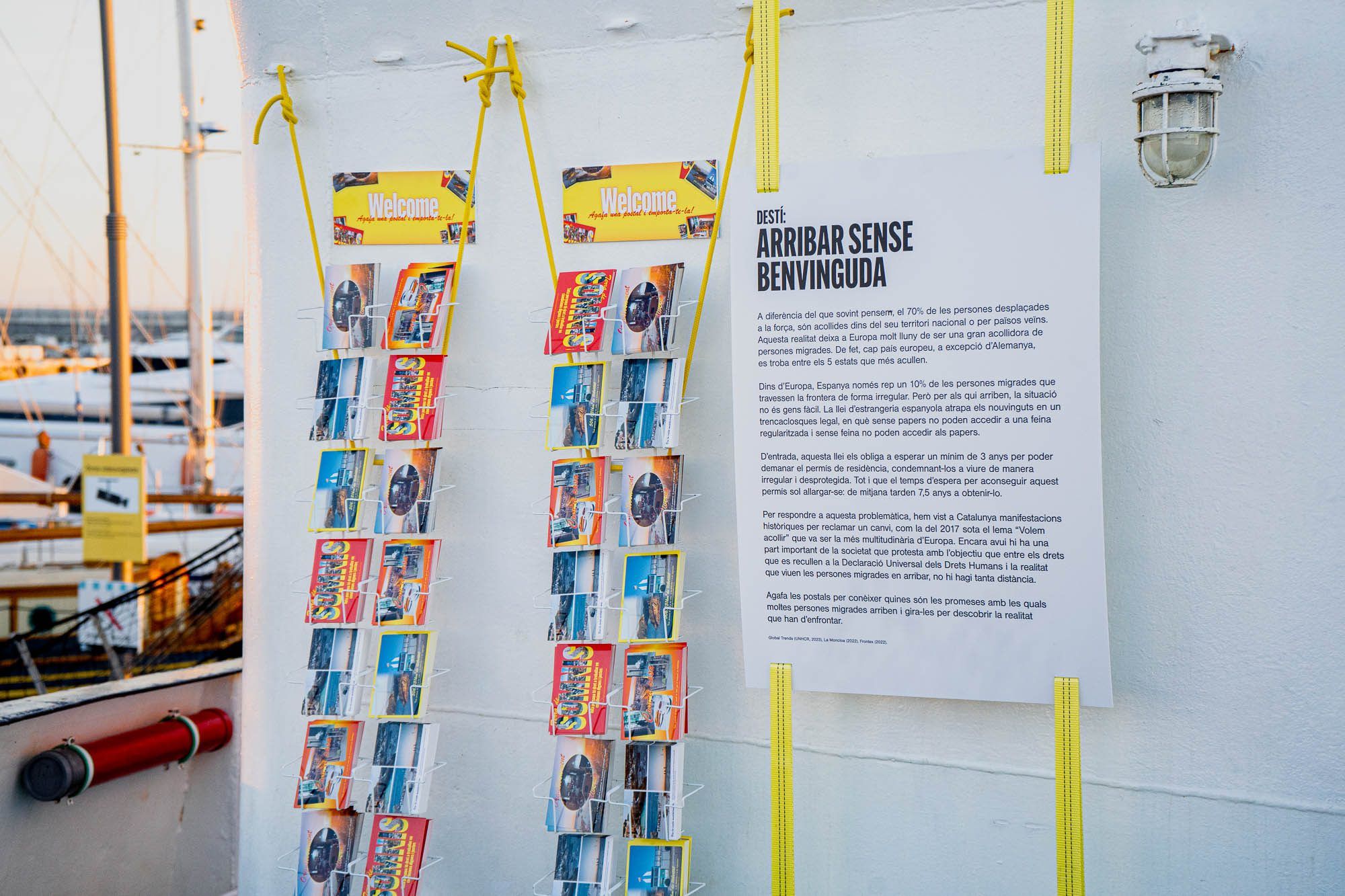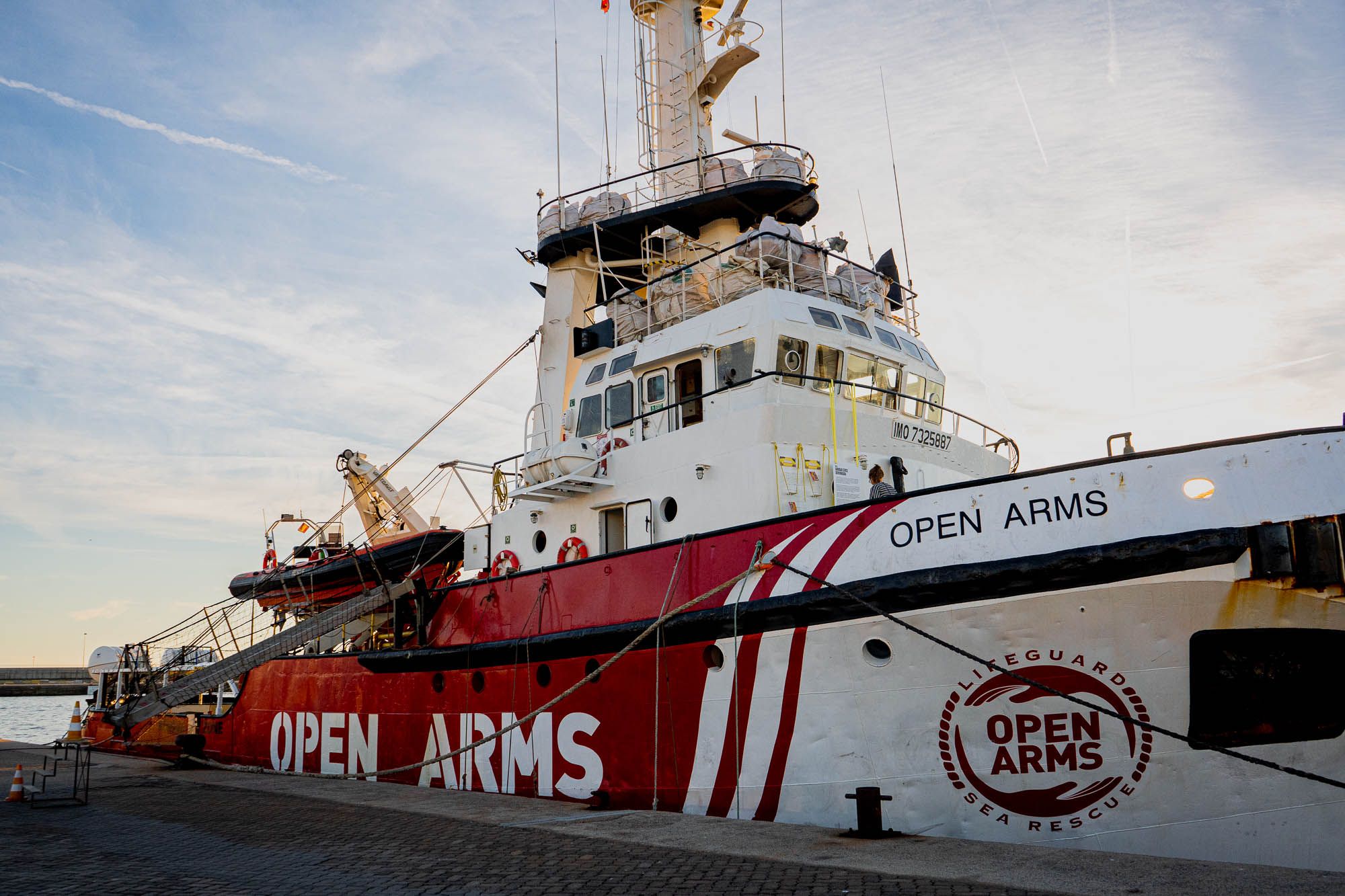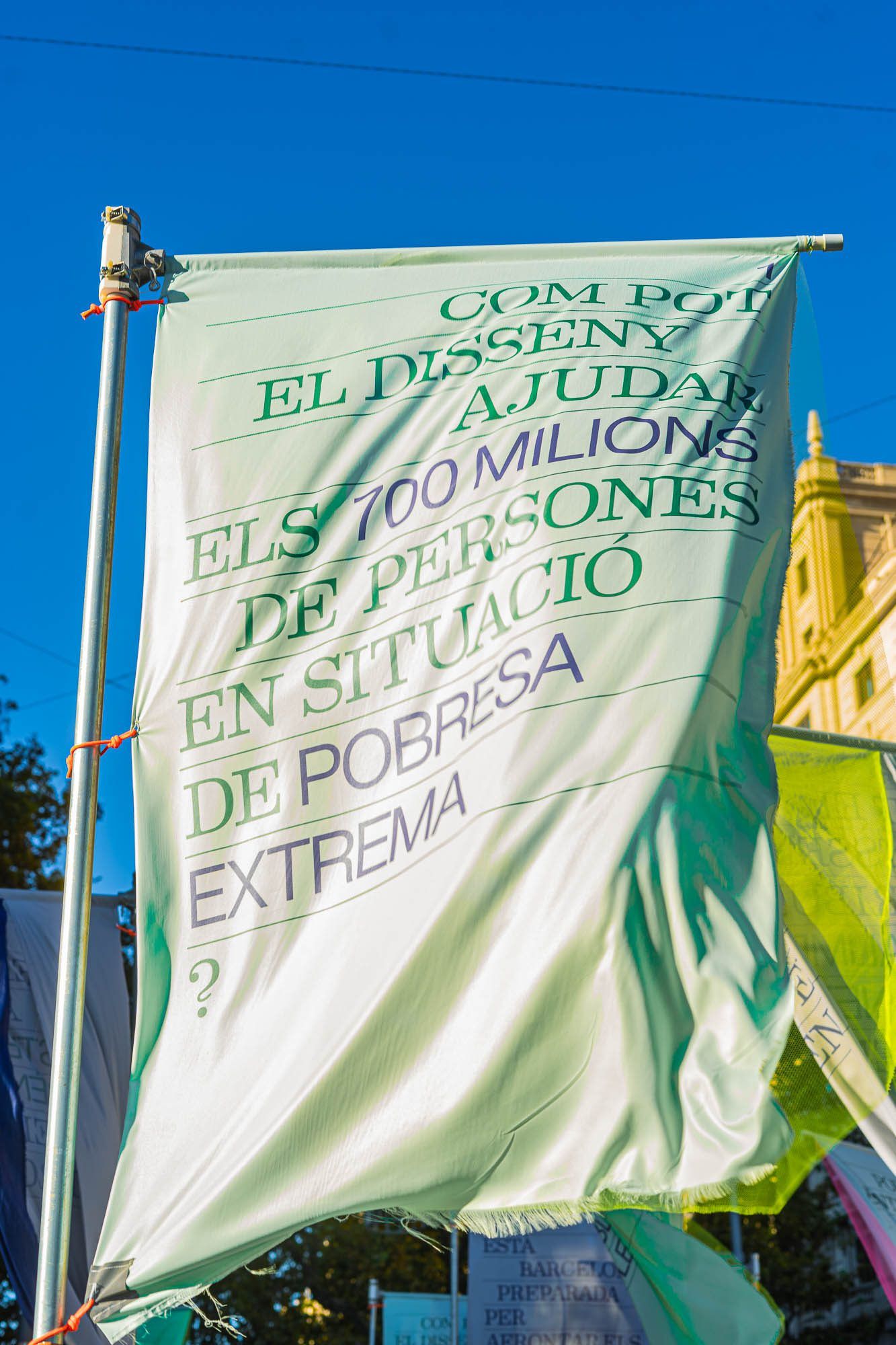We produced an exhibition onboard the Open Arms rescue boat to challenge myths and assumptions around the migrant experience. Through three distinct pieces, we focussed on data that shows Europe's implication in human rights violations at every stage of the migrant journey: the origin, the journey, and the arrival.
This exhibition marked the 75th anniversary of the Universal Declaration of Human Rights, and travelled through several ports along the coast of Catalunya, showing the great amount of work that still lies ahead in securing these rights for all.
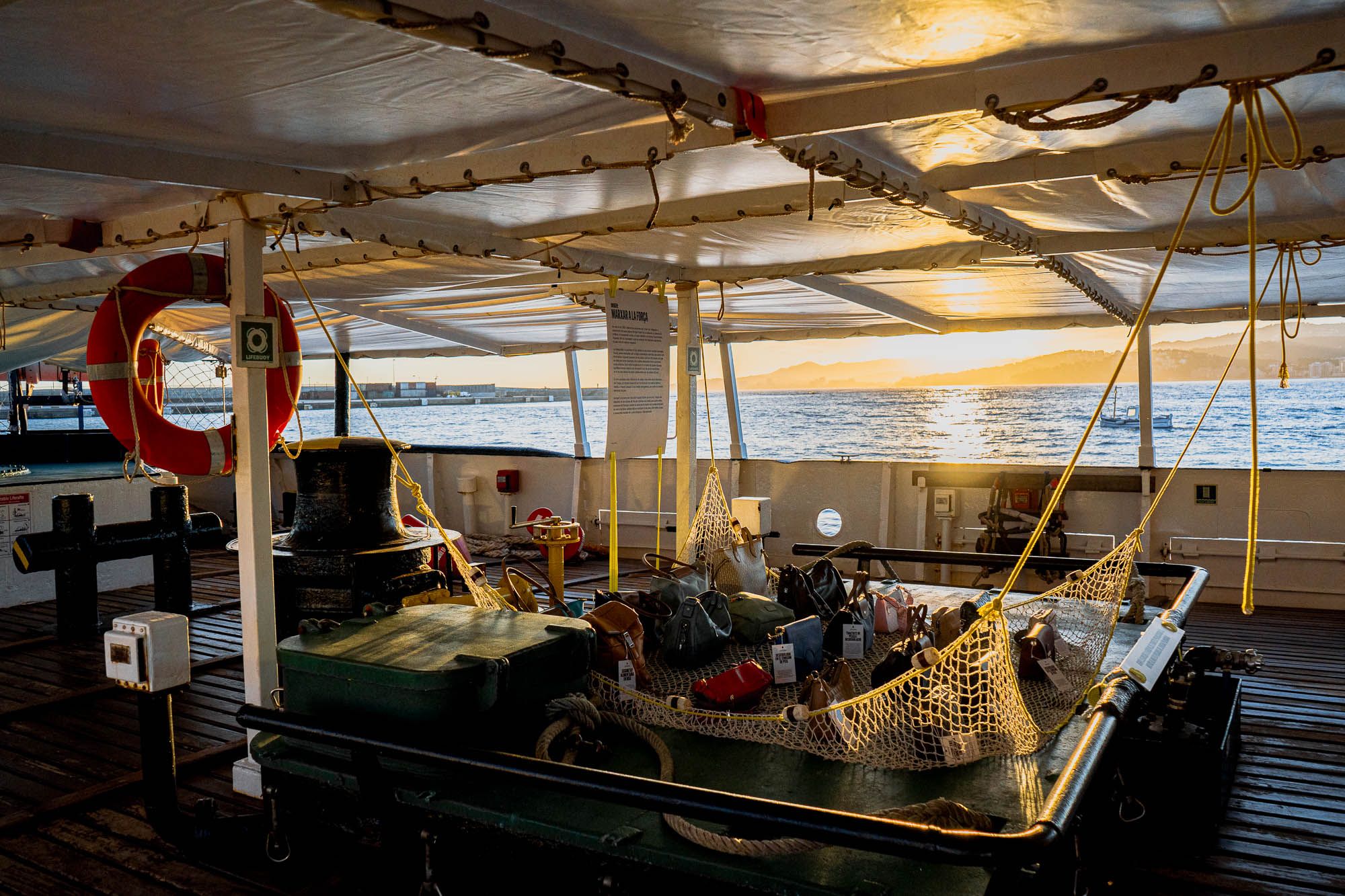
Origins
In the world, there are 108.4 million people who have been forced to leave their countries of origin fleeing violence, political persecution, insecurity, hunger, climate change, or lack of opportunities.
The first piece looked at the origin. The global north often looks to the south for natural resources to meet a hugely inflated consumer demand. A clear example is the looting of fish from Senegalese waters, which leads fishermen to trade their nets for blankets in the streets of Barcelona, and many other European cities, where they sell designer goods.
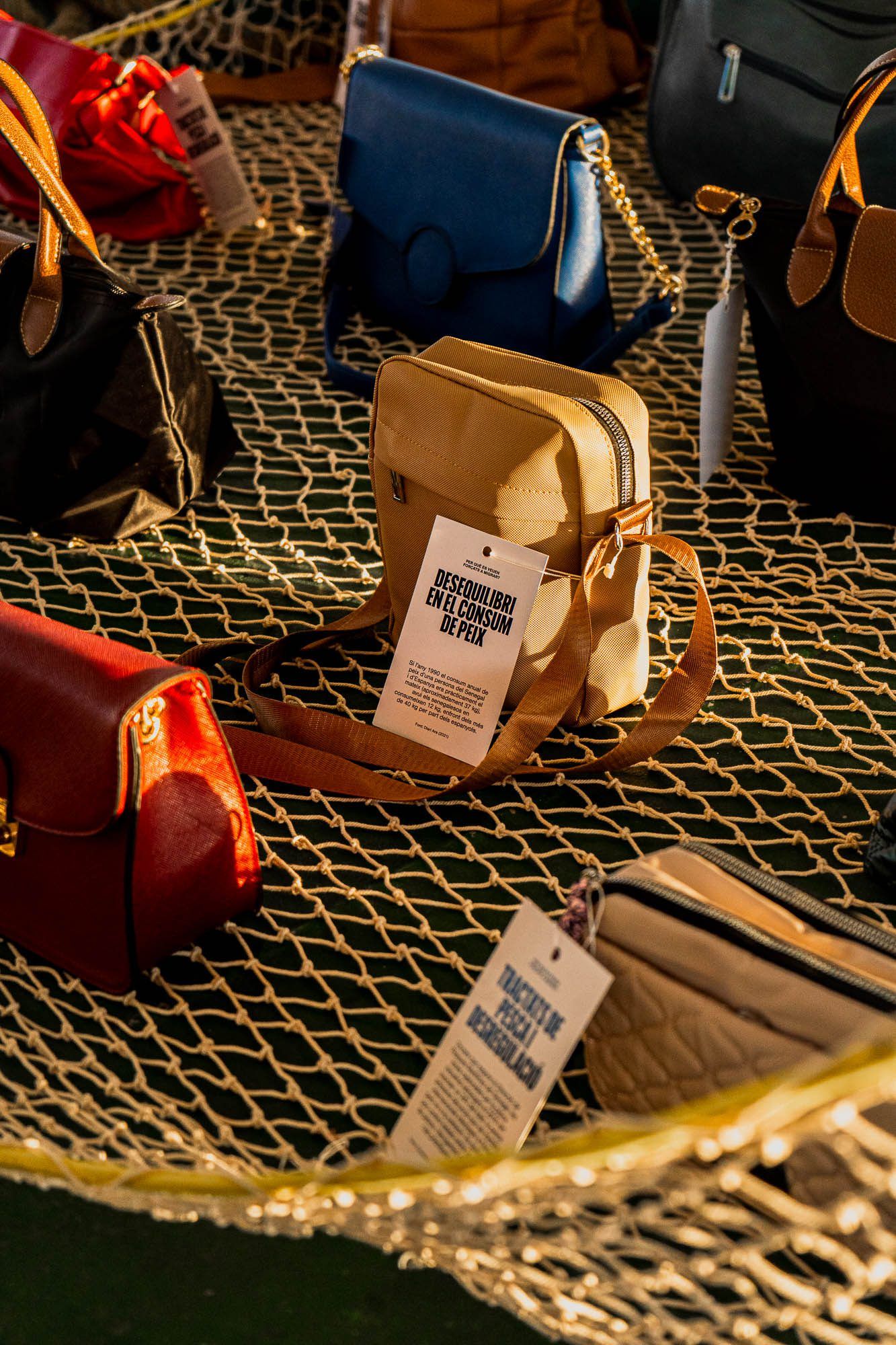
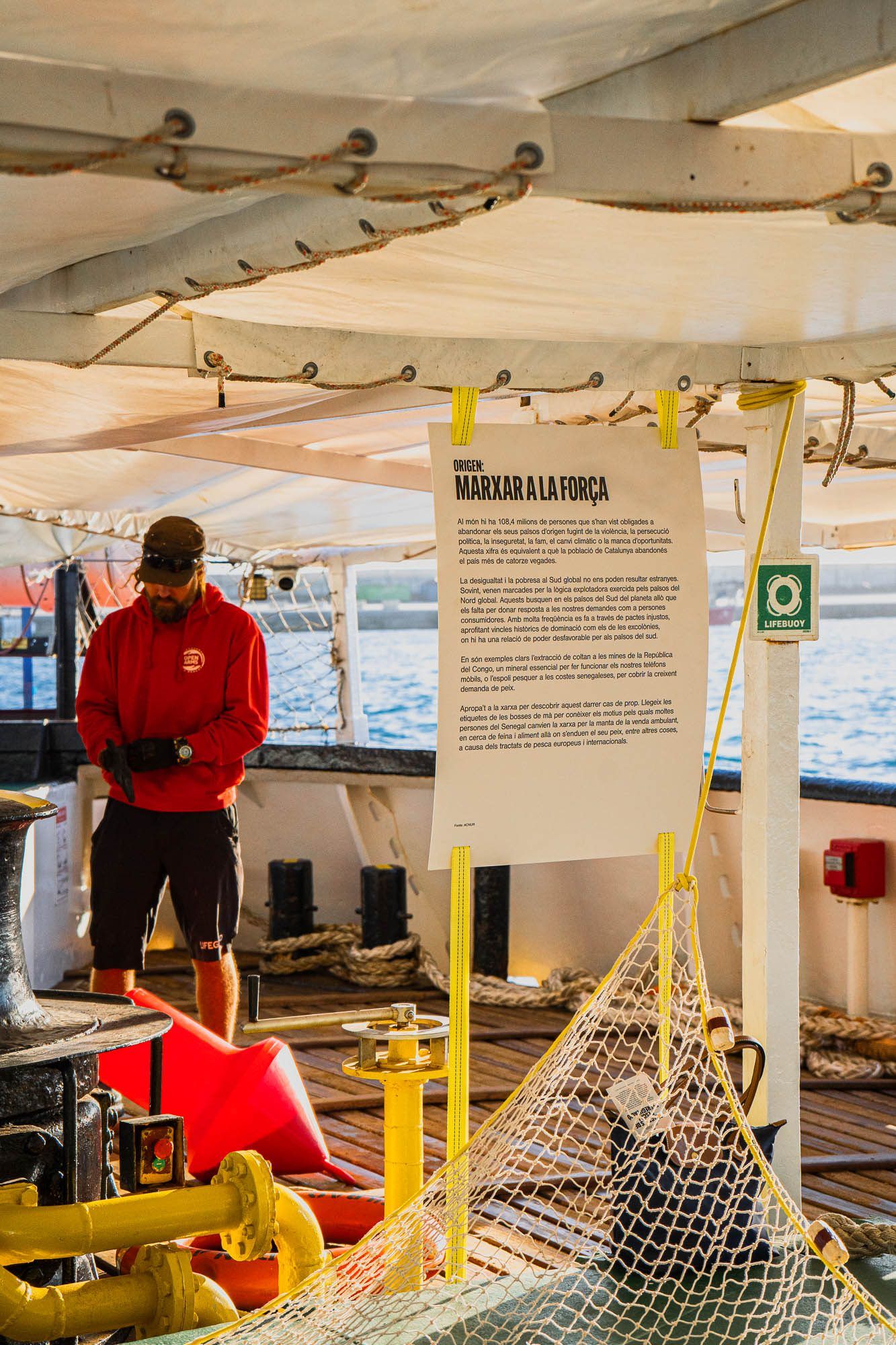
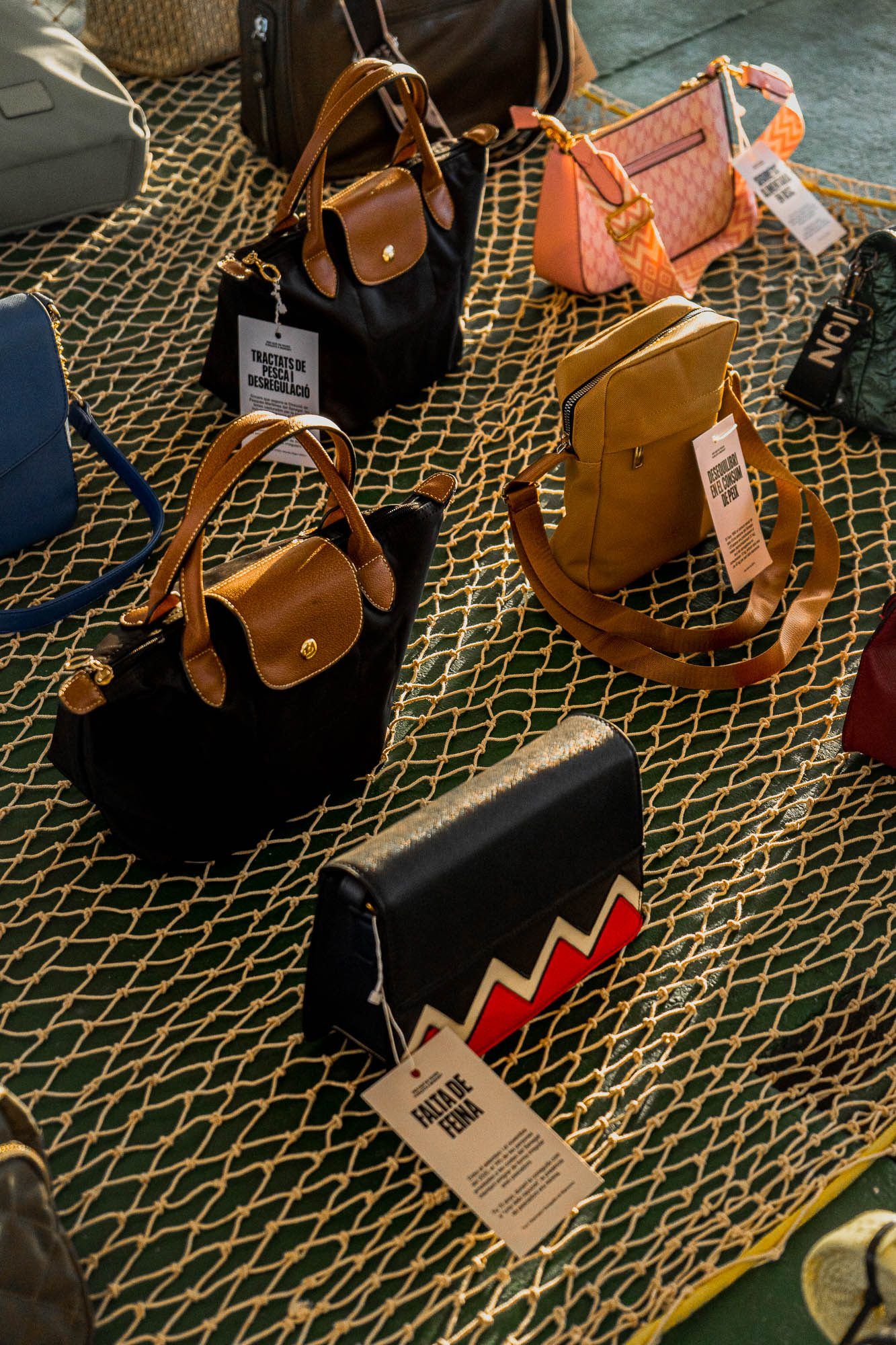
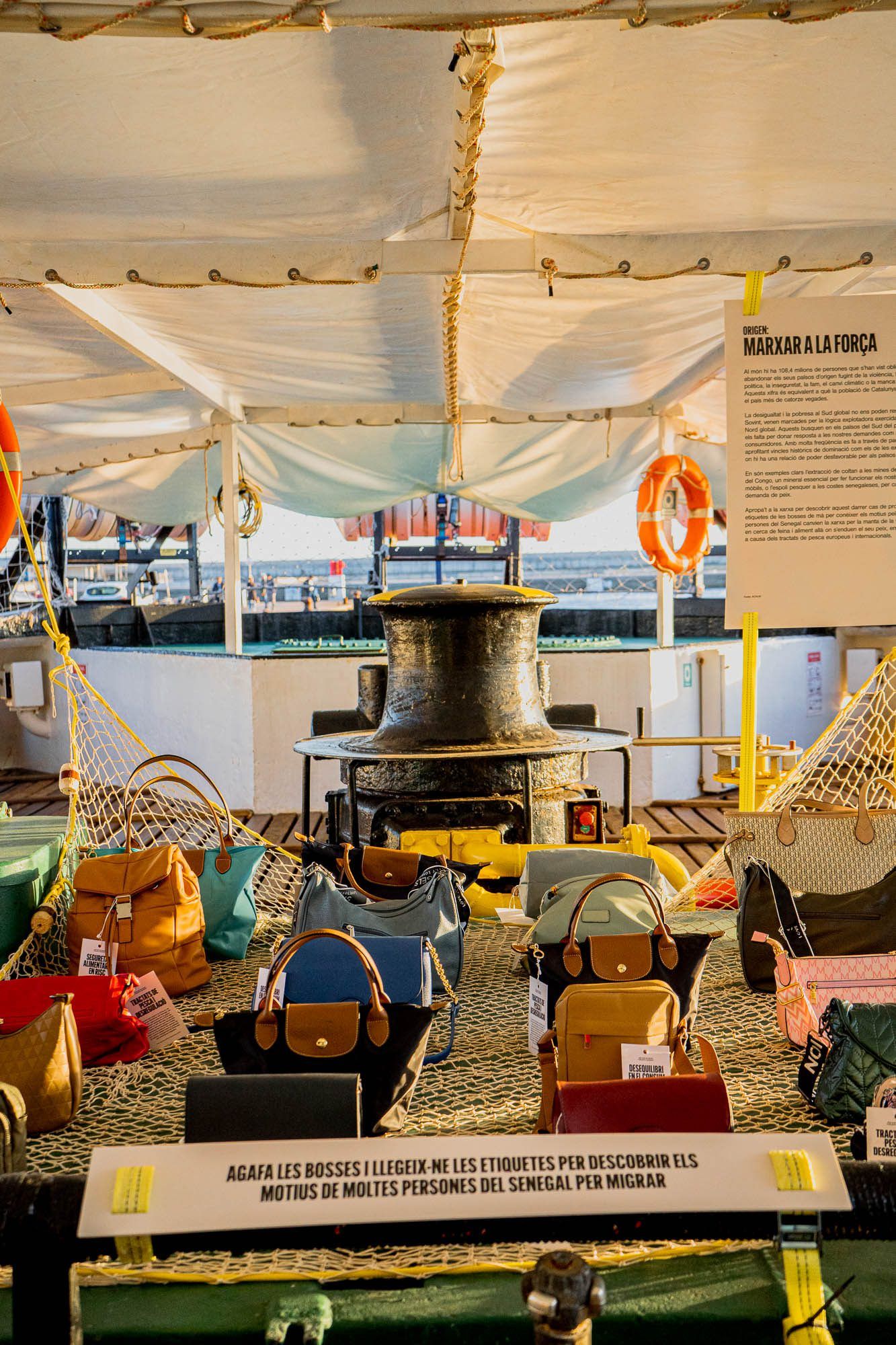
We put labels on these handbags to contextualise why many people from Senegal trade fishing nets for the blanket of street vending, due to European and international fishing treaties.
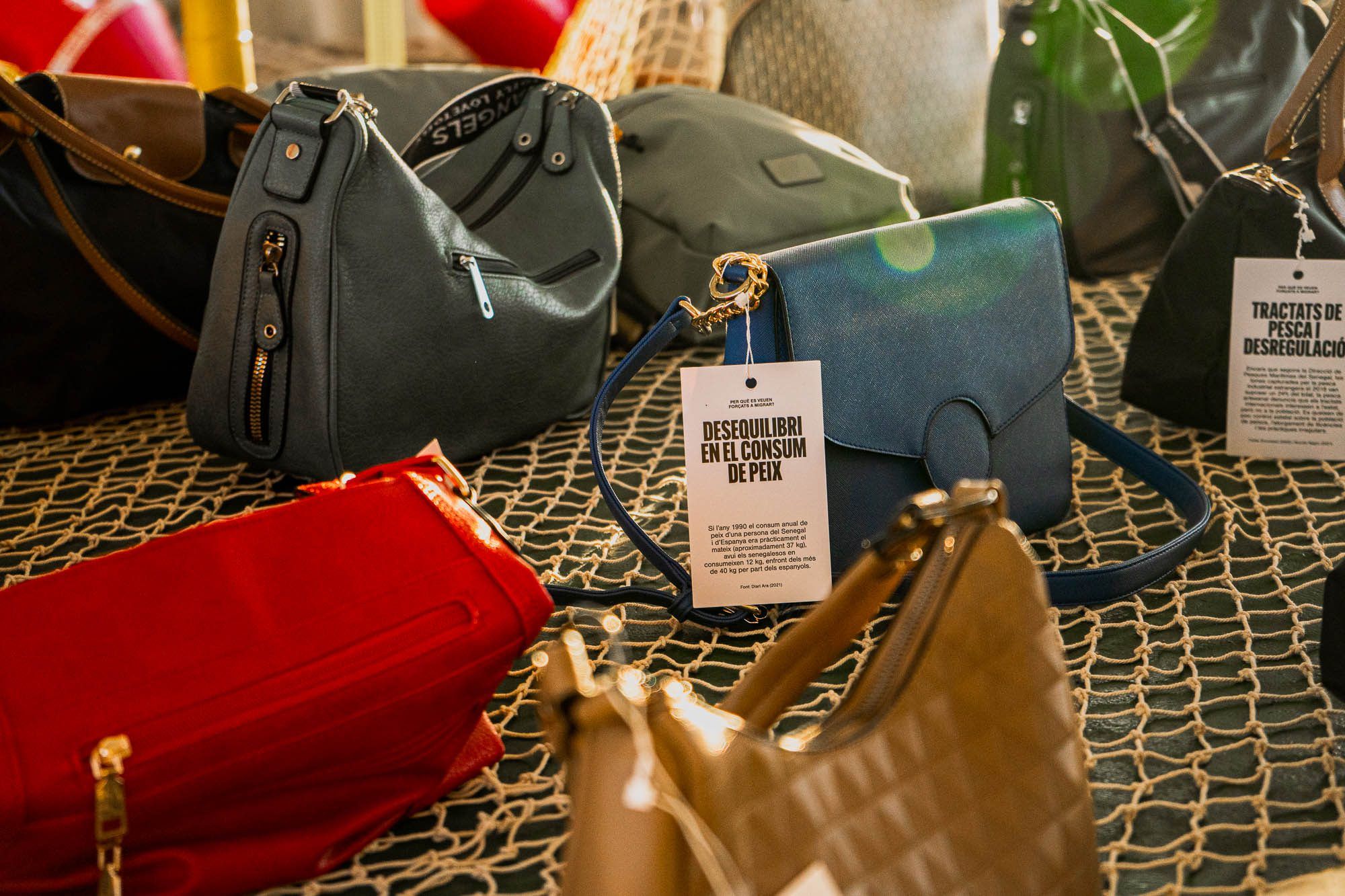
Journey
This year, more than 300,000 people have crossed the mediterranean in search of refuge, and at least 4,404 have died on the way.
Despite the criminalisation faced by many of the organisations that offer them support, they continue to seek ways to inform, act, and collectively call for the urgent establishment of a global justice model that includes safe migration routes.
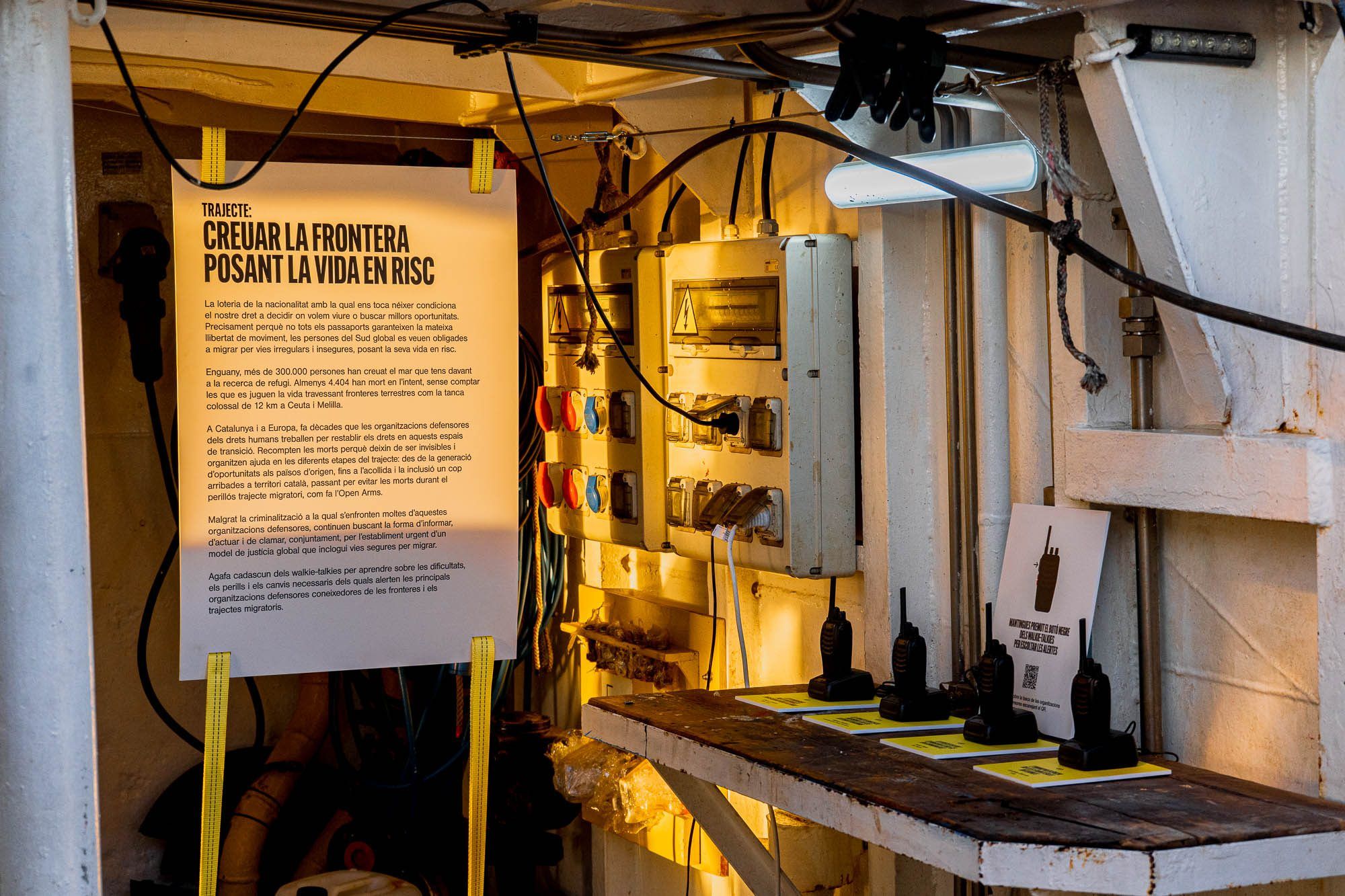
Walkie talkies are an essential tool for communicating onboard rescue boats, and here we use them to give a voice to those protecting the waters. Visitors could pick one up to hear stories of the difficulties, dangers, and changes that are desperately needed to protect the human rights of those making the crossing.
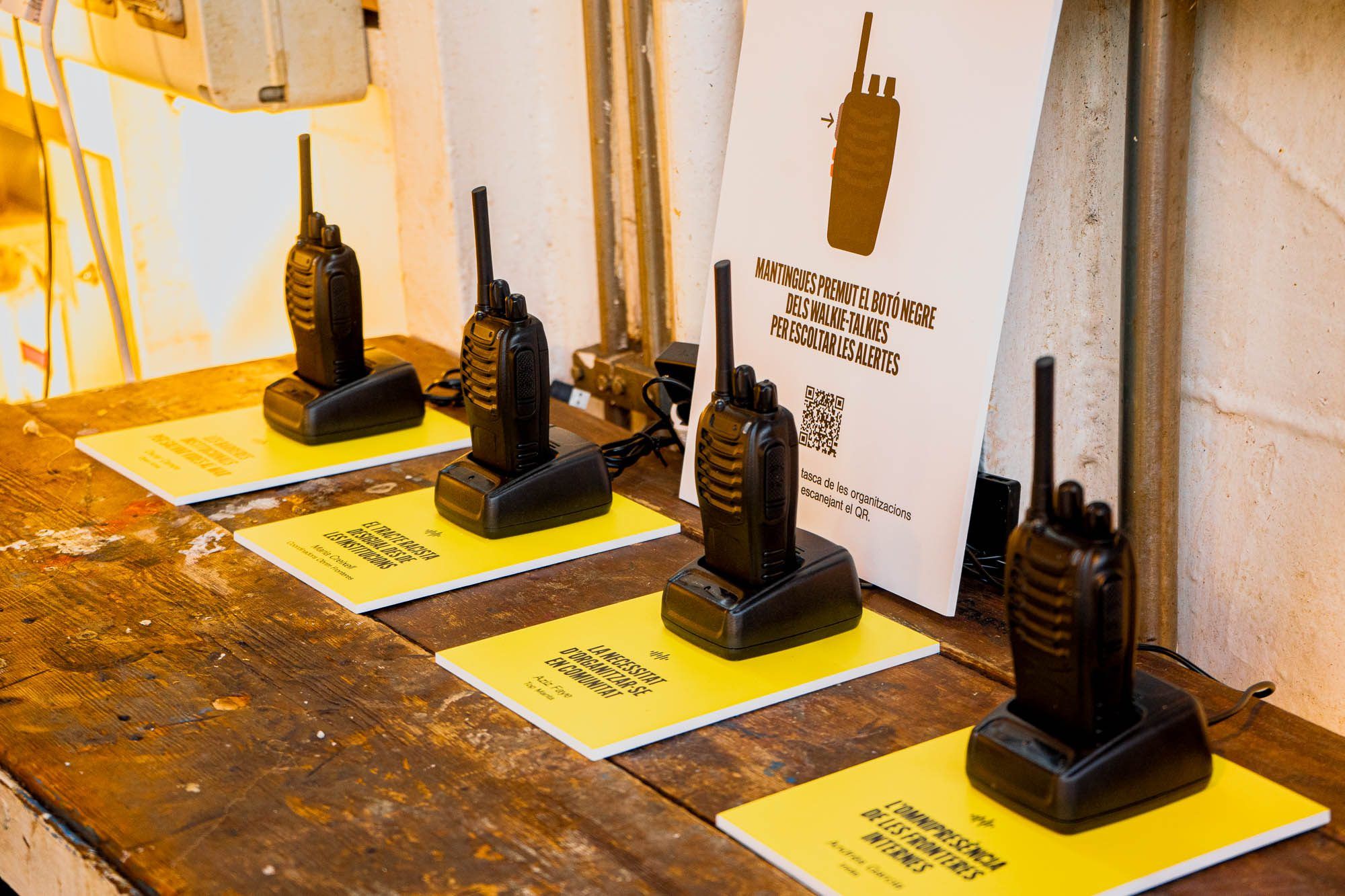
Arrival
The final piece looked at the human rights violations faced upon arrival. The Spanish immigration laws trap newcomers in a legal puzzle, where without papers, they cannot access regularised employment, and without employment, they cannot access papers.
On average this process take 7.5 years to be resolved.
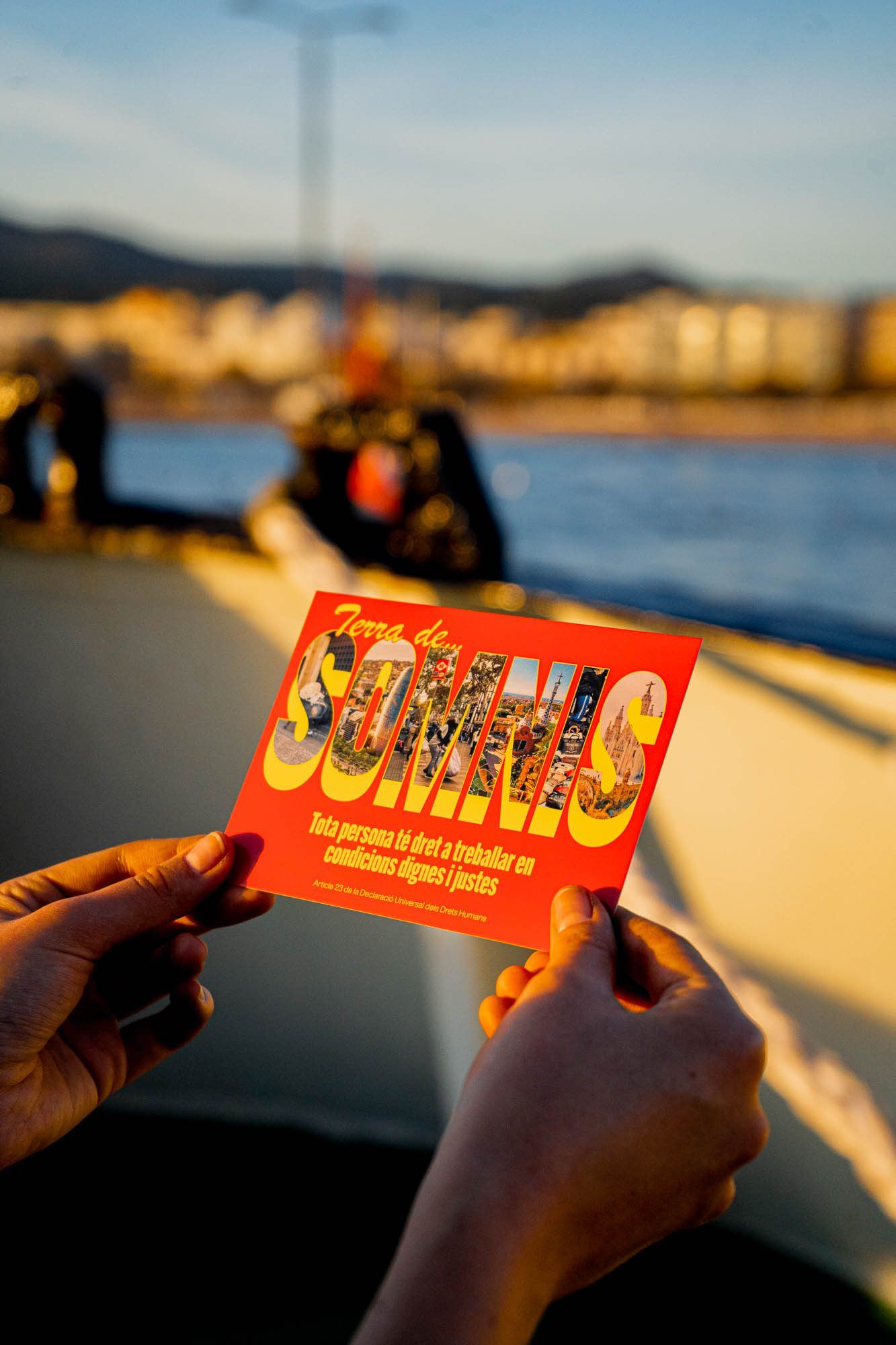
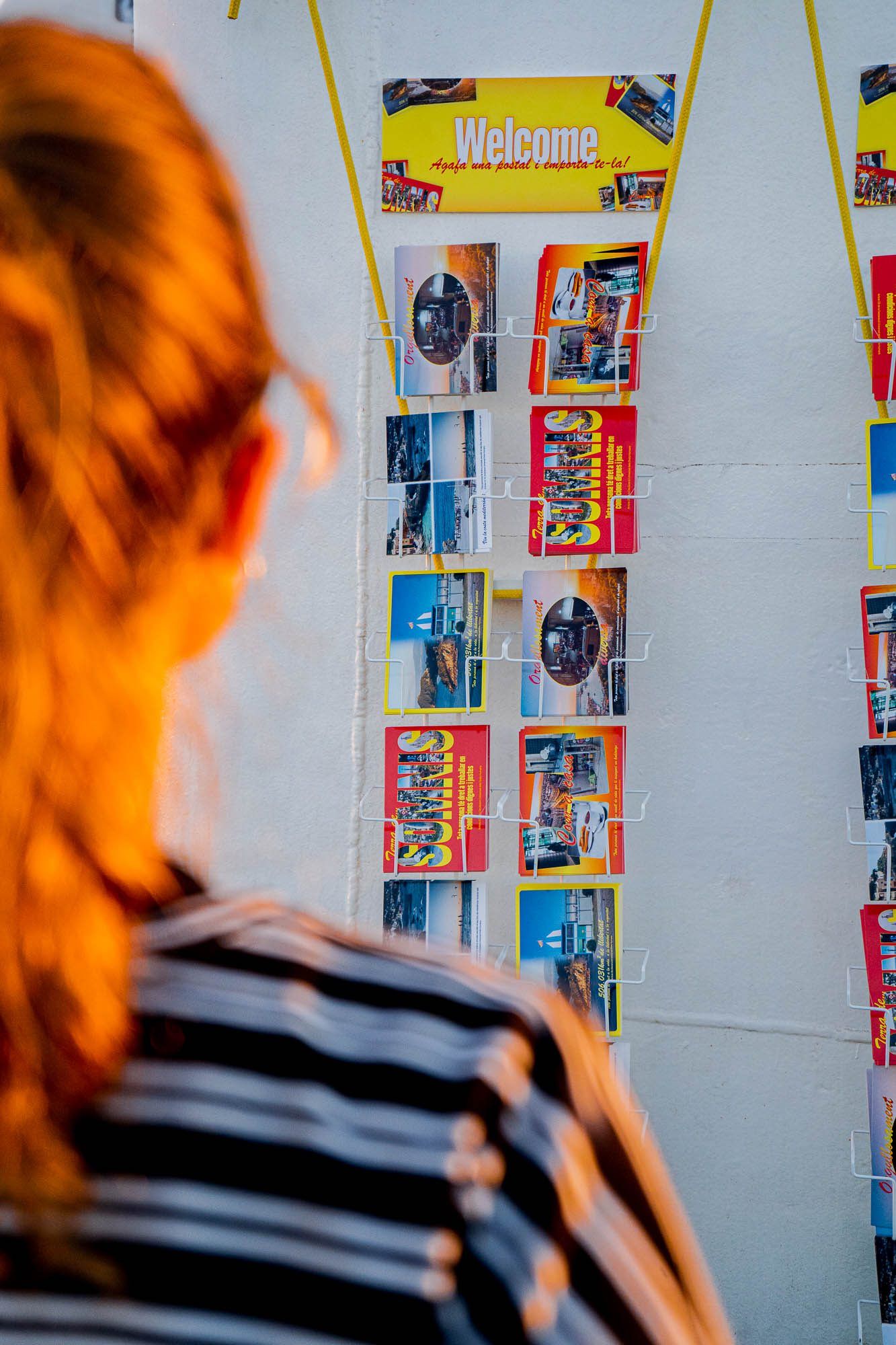
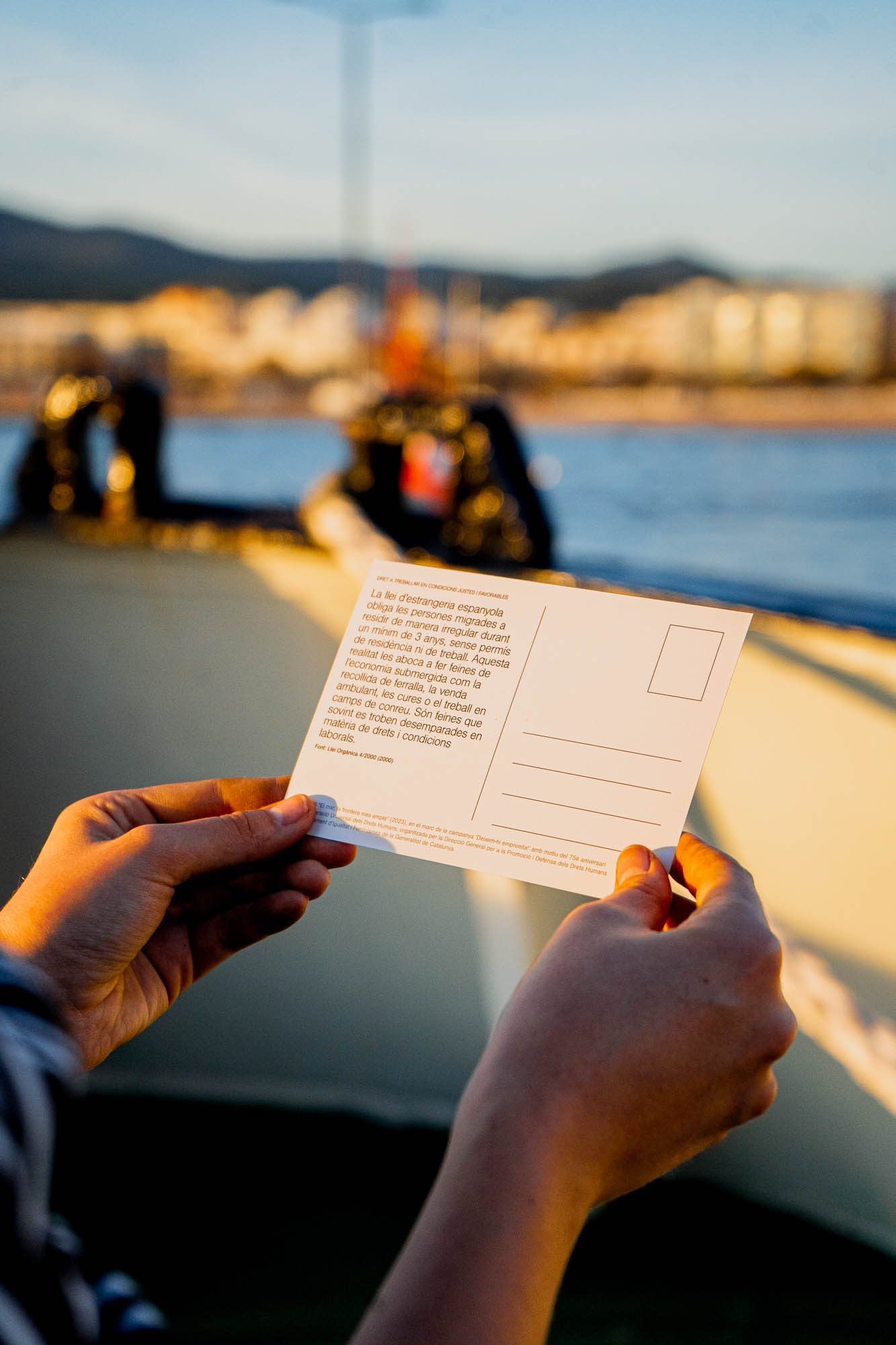
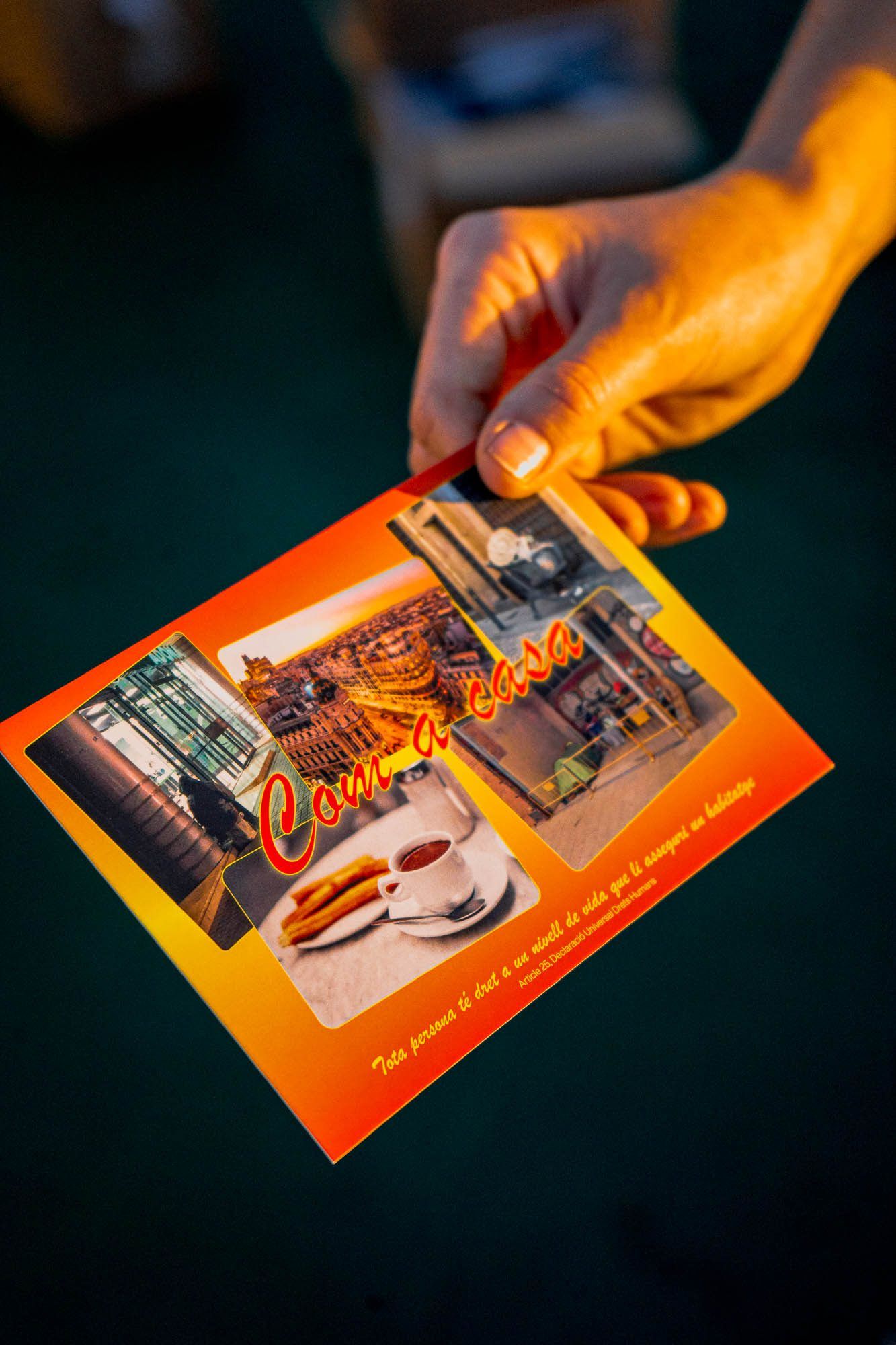
On these postcards we printed the promises with which many migrants arrive, and on the flip side we discover the reality they have to face.
